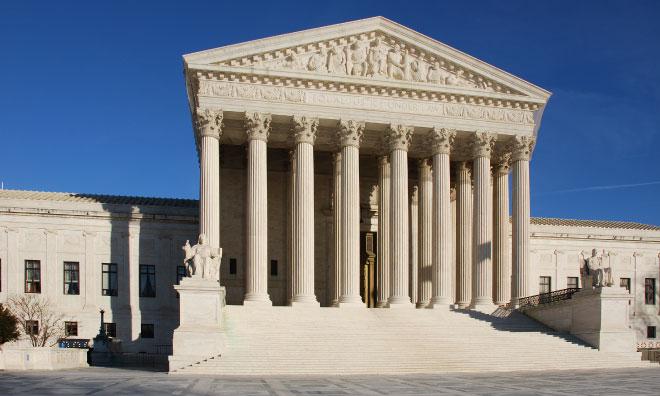Prominent patent buyer Intellectual Ventures won't be able to count Apple among the participants in its latest IP purchase, as the iPhone maker has apparently opted out of its latest investment.
Apple and Intel both declined to participate in the latest patent buy from Intellectual Ventures, though Microsoft and Sony are a part of the purchase, according to Reuters. One expert referred to the lack of participation from Apple and Intel as a "dramatic departure."
Apple's opt-out comes at a time when intellectual property investments are under major scrutiny. While so-called "patent trolls" target major corporations like Apple with lawsuits in an effort to profit, the smartphone industry is also filled with IP lawsuits, most prominently an ongoing worldwide battle between Samsung and Apple.
Previously, Apple and Intel joined Microsoft and Sony in buying IP through Intellectual Ventures. Those investments ensured low-cost licenses of protected patents, and also netted the companies a portion of royalties collected.
In February, Apple was joined by Google in asking the U.S. Supreme Court to make changes that would curb patent abuse and allow stiffer penalties for "trolls" who bring frivolous lawsuits that can prove quite costly in the courtroom. They, along with Intel, Yahoo, Cisco and Facebook, asked the court to make it easier for companies to defend themselves against patent claims, which are frequently brought by companies that produce no products and simply profit from royalties and legal action.
In addition, earlier this month Apple joined a number of major U.S. corporations, including Microsoft, IBM, Ford and Pfizer, to form a lobbying group that opposes proposed changes to the American patent system. The "Partnership for American Innovation" has expressed concern that some proposed legislation in Congress intended to fight "trolls" could also hurt major, more legitimate corporations.
Last August it was revealed that those "trolls," or non-practicing intellectual property owning entities, had hit Apple with 171 lawsuits in the last five years. That made Apple handily the most-targeted corporation, easily beating the 137 lawsuits seen by No. 2 Hewlett Packard, and 133 complaints against third-place Samsung.
Apple Chief Executive Tim Cook spoke with members of the U.S. Senate about patent issues during a testimony last May. But the CEO spoke of his own interest in strengthening companies' abilities to protect their own intellectual property, rather than warding off lawsuits from non-practicing entities.
 Neil Hughes
Neil Hughes








-m.jpg)






 Charles Martin
Charles Martin

 Malcolm Owen
Malcolm Owen
 William Gallagher
William Gallagher

 Christine McKee
Christine McKee
 Wesley Hilliard
Wesley Hilliard









50 Comments
Either build and use or build and sell publicly what you have said patent application for within a designated period of time (perhaps 3-5 years) or you lose the rights to the application and any chance of it getting granted. And what's more, if you apply and follow all the rules correctly your granted patent has a limited life. Perhaps 20 years for hardware and 10 years for software. Something along the lines of this would stop patent trolls in their tracks, would help stop powerful companies using patents as a weapon, and I think this would also help to make clear patent law, even to the layperson.
[quote name="Ireland" url="/t/178184/apple-opts-out-of-latest-patent-acquisition-fund-from-intellectual-ventures#post_2514539"]Either build and use or build and sell publicly what you have said patent application for within a designated period of time (perhaps 3-5 years) or you lose the rights to the application and any chance of it getting granted. And what's more, if you apply and follow all the rules correctly your granted patent has a limited life. Perhaps 20 years for hardware and 10 years for software. Something along the lines of this would stop patent trolls in their tracks, would help stop powerful companies using patents as a weapon, and I think this would also help to make clear patent law, even to the layperson.[/quote] I agree. Use it or lose it within 5 years or so after patent is granted. As long as you make a product using the patent, it won't expire.
[quote name="Ireland" url="/t/178184/apple-opts-out-of-latest-patent-acquisition-fund-from-intellectual-ventures#post_2514539"]Either build and use or build and sell publicly what you have said patent application for within a designated period of time (perhaps 3-5 years) or you lose the rights to the application [/quote] I think that's generally the law in Australia, but don't know if it's enforced. IIRC if a patented invention isn't produced by the applicant within 3 years then others may use it. EDIT: Here's a citation that explains how Australia views it. http://www.alrc.gov.au/publications/27-compulsory-licensing/compulsory-licensing
Either build and use or build and sell publicly what you have said patent application for within a designated period of time (perhaps 3-5 years) or you lose the rights to the application and any chance of it getting granted. And what's more, if you apply and follow all the rules correctly your granted patent has a limited life. Perhaps 20 years for hardware and 10 years for software.
Something along the lines of this would stop patent trolls in their tracks, would help stop powerful companies using patents as a weapon, and I think this would also help to make clear patent law, even to the layperson.
Also, adding "on a computer", "on the internet" or "on a mobile device" to the end of an existing concept does not make it a new idea worthy of a patent.
[quote name="jungmark" url="/t/178184/apple-opts-out-of-latest-patent-acquisition-fund-from-intellectual-ventures#post_2514567"] I agree. Use it or lose it within 5 years or so after patent is granted. As long as you make a product using the patent, it won't expire.[/quote] Regrettably for small inventors and business owners that brief timeline would not only be disadvantageous, it would crush the idea of them participating entirely in the market of creating and utilizing intellectual property for their benefit. The timeline should remain the same. What I don't agree with is the Disney-spearheaded changes that led to the unreasonable extension of copyrights.